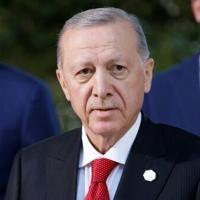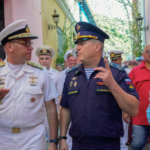The presidency informed AFP that Turkish President Recep Tayyip Erdogan will be present in Germany for his country’s Euro 2024 quarter-final on Saturday. This comes at a time when Ankara and Berlin are engaged in a dispute over a Turkish footballer’s celebratory gesture.
The diplomatic row escalated after Turkish footballer Merih Demiral was seen making an alleged ultra-nationalist hand sign during his team’s victory over Austria, leading to Germany summoning Turkey’s ambassador in Berlin on Thursday. The German foreign ministry expressed its desire to use sport as a means to bring people together, especially as they host Euro 2024.
In response, Turkey summoned the German ambassador in Ankara the day before these events unfolded. Despite UEFA launching an investigation into Demiral’s gesture, which is associated with the Turkish ultra-nationalist group Grey Wolves, Ankara criticized Germany’s reaction as “xenophobic”.
German leaders condemned Demiral’s action, with Interior Minister Nancy Faeser stating that “the symbols of Turkish right-wing extremists are unwelcome in our stadiums” and that using the European football championships to promote racism is unacceptable.
While Erdogan himself has not commented on the issue directly, members of his ruling AKP party and various ministers have criticized Germany’s response. Turkey’s foreign ministry accused German authorities of xenophobia and defended the use of the Grey Wolves symbol as a historical and cultural gesture without targeting anyone.
-‘No hidden message’-
The Grey Wolves, known as the militant wing of Turkey’s Movement Party (MHP), have been banned in France and Austria but not in Germany. The group was involved in violent acts against leftist activists and minority groups in the 1980s.
After the match in Leipzig, Demiral stated that his celebration had no hidden message and was simply a reflection of his Turkish identity. He expressed pride in his Turkish heritage and defended his gesture as a representation of unity among Turks.
Germany’s large Turkish diaspora will be closely following Turkey’s quarter-final match against the Netherlands, highlighting the complex relationship between the two countries. Despite concerns over Erdogan’s crackdown on dissent, Berlin acknowledges the importance of maintaining ties with Turkey to address regional challenges.
rba-jsk/hmn/gj





